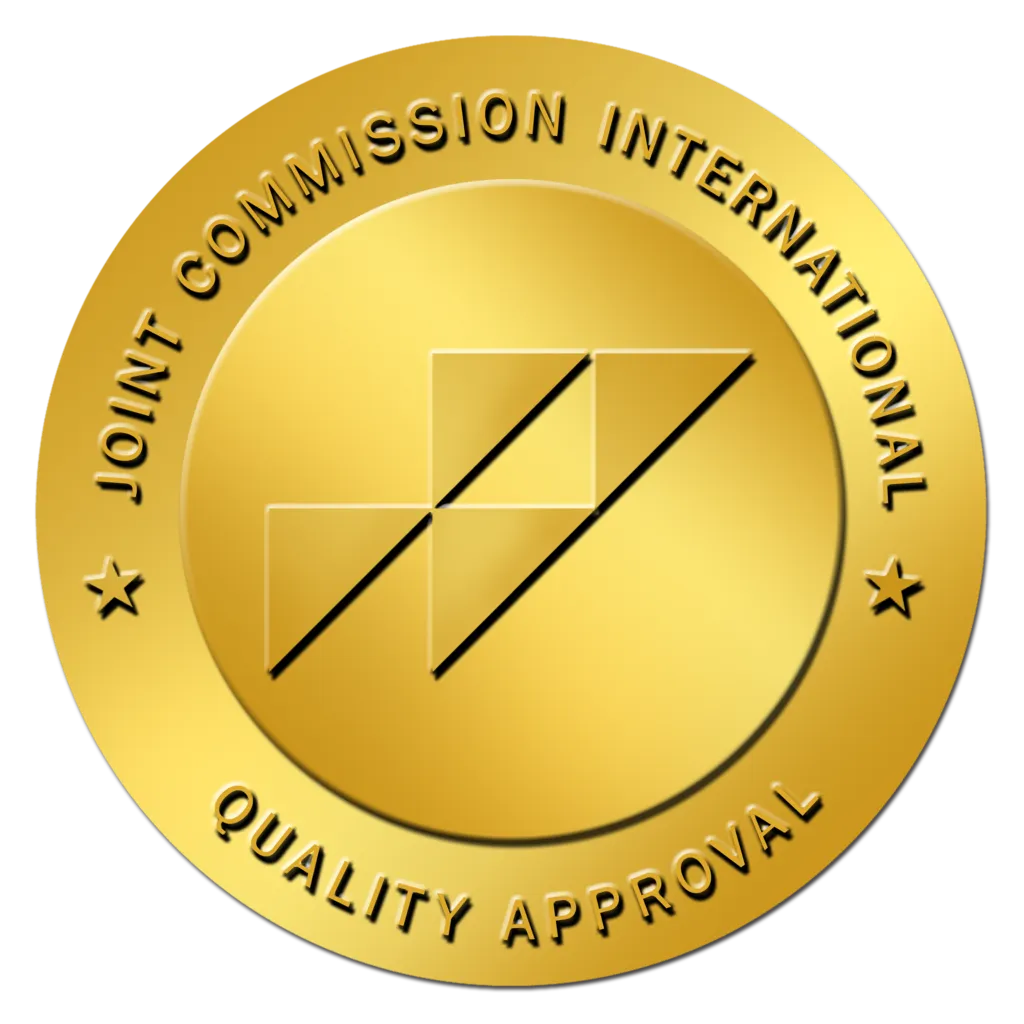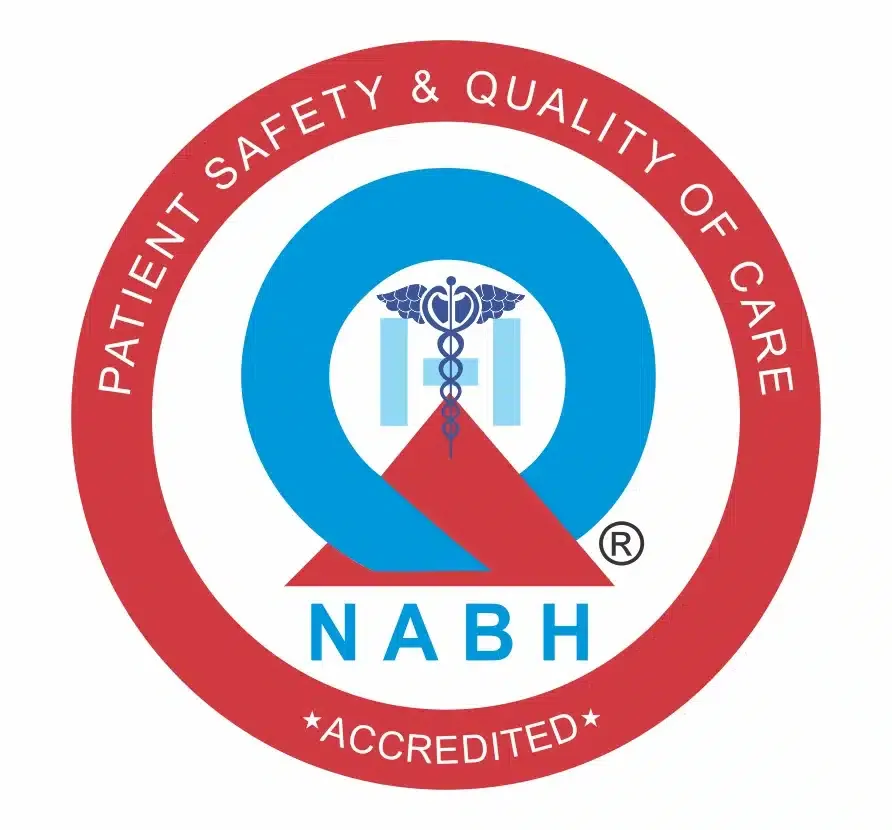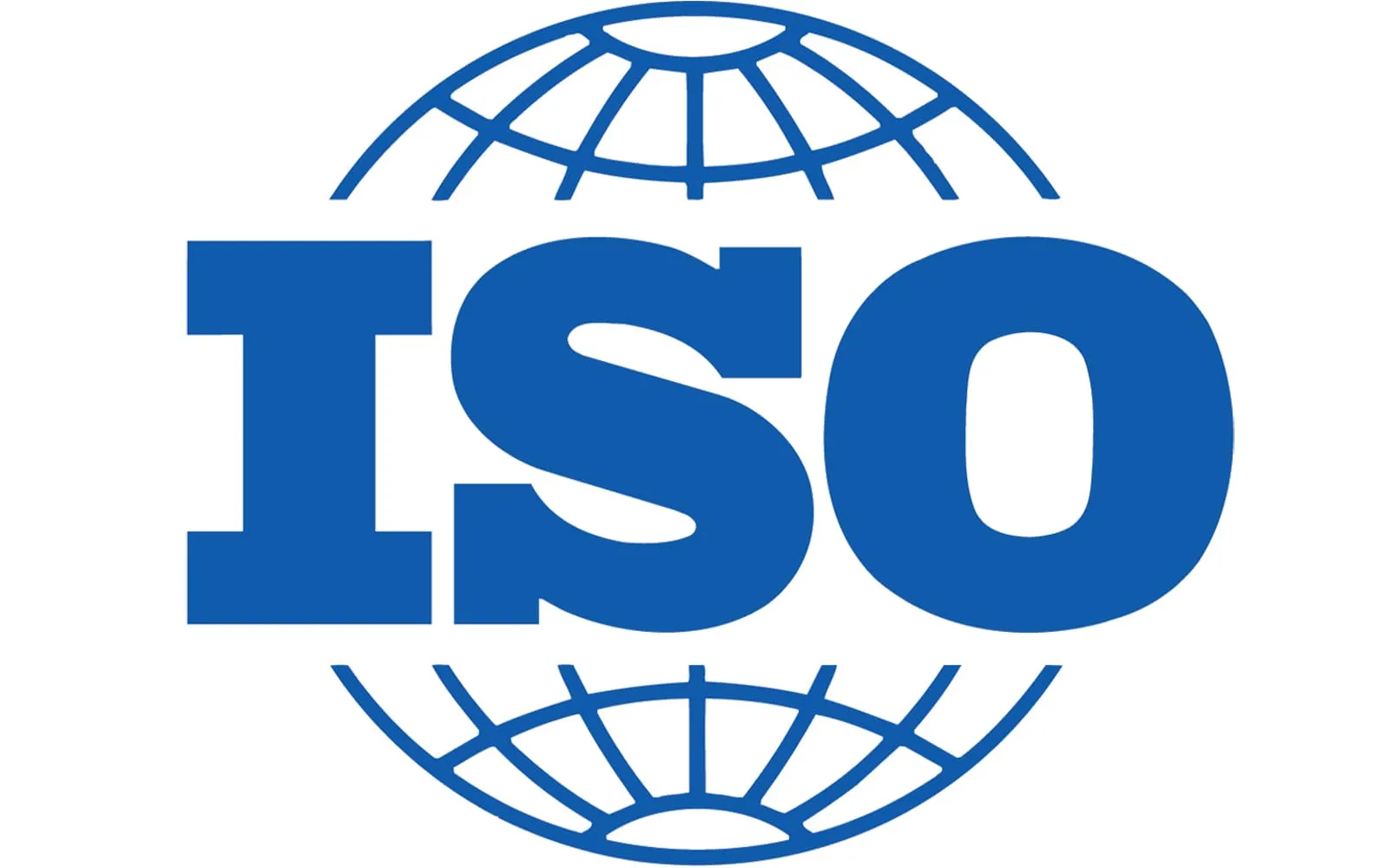
Carpal Tunnel Surgery Cost in India
About Carpal Tunnel Surgery
What Is Carpal Tunnel Surgery?
Carpal tunnel surgery is a medical procedure performed to relieve pressure on the median nerve, which passes through a thin passage in the wrist called the carpal tunnel. This nerve controls sensations and muscle movement in parts of the hand. When compressed, it causes symptoms such as tingling, pain, numbness, and weakness in the hand and fingers.
The goal of the surgery is to release the pressure on the nerve by trimming the transverse carpal ligament that forms the roof of the tunnel. Once released, the pressure on the nerve is relieved, and symptoms gradually improve. The procedure is known as carpal tunnel release (CTR).
Carpal tunnel surgery is typically recommended for patients who:
- Have persistent symptoms despite medication or splinting.
- Experience muscle weakness or loss of hand function.
- Suffer from nighttime pain that disrupts sleep.
CTS surgery is usually done on an outpatient basis, meaning you can return home the same day. It is performed using local or regional anesthesia, and depending on the technique used, it may require one or two small incisions.
There are two main surgical techniques:
- Open Carpal Tunnel Release: Ortho surgeons make a small incision in the palm to access and cut the ligament.
- Endoscopic Carpal Tunnel Release: Surgeons insert a tiny camera and instruments through one or two small incisions to release the ligament with minimal tissue disruption.
Both techniques aim to relieve pressure on the nerve, but endoscopic surgery may offer quicker recovery and less scarring.
When Is Carpal Tunnel Surgery Needed?
Carpal tunnel surgery becomes necessary when the condition starts to interfere with daily life or when nerve damage is likely to worsen without intervention. Doctors typically advise surgery if conservative treatments (such as physical therapy, anti-inflammatory medications, or wrist splints) fail to control symptoms.
You may need surgical treatment if:
- You feel constant numbness or tingling, even when resting.
- Hand strength declines, making it hard to grip objects or perform tasks like buttoning a shirt.
- Symptoms worsen at night, causing sleep disturbances.
- There's evidence of muscle wasting, especially at the base of the thumb.
- Nerve tests (like EMG or nerve conduction studies) confirm significant compression.
In such cases, delaying surgery can lead to permanent nerve damage. Early surgical intervention can preserve hand function and prevent long-term complications. It's essential to have a specialist evaluate your symptoms and confirm whether surgical release is the right next step.
What are the Different Types of Carpal Tunnel Release Surgery?
Carpal tunnel release surgery is performed using two primary techniques, both aimed at releasing pressure on the median nerve but differing in how the ligament is accessed. The choice of technique often depends on the severity of the condition, the surgeon's expertise, and patient preferences.
Open Carpal Tunnel Release Surgery
It is the traditional approach where the surgeon makes a small incision (about 2–3 cm) in the palm. Through this opening, the transverse carpal ligament is carefully cut to widen the carpal tunnel and relieve nerve compression.
Advantages:
- Direct visibility of the ligament.
- It is often preferred for advanced or complex cases.
Considerations:
- Slightly longer recovery time.
- Scar may take a few weeks to fade.
Endoscopic Carpal Tunnel Release Surgery
Endoscopic CTS surgery is a minimally invasive option that uses a tiny camera (endoscope) and specialized instruments. The surgeon inserts the scope through a small incision near the wrist or palm and views the ligament on a monitor to perform the release without a large incision.
Advantages:
- Smaller incisions with minimal scarring.
- Faster recovery and return to activities.
Considerations:
- Requires specialized equipment and training.
- There is a slightly higher upfront cost due to advanced technology.
Both techniques are effective and safe. However, endoscopic surgery may offer quicker return to work and less postoperative discomfort, making it popular among working professionals and international patients with limited travel time.
How is Carpal Tunnel Release Surgery Done?
Carpal tunnel surgery is a straightforward outpatient procedure. The goal of the surgery is to reduce pressure on the median nerve by cutting the carpal ligament that compresses it.
- Preparation: The medical team first cleans the hand and wrist area with an antiseptic. The anesthesiologist then administers local or regional anesthesia, numbing only the hand or arm so the patient stays awake but feels no pain.
- Incision: Based on the technique, the surgeon makes a single incision in the palm (open release) or one or two small incisions near the wrist (endoscopic release). These incisions provide access to the transverse carpal ligament.
- Ligament Release: In open surgery, the surgeon directly visualizes and carefully cuts the transverse carpal ligament to enlarge the carpal tunnel. In endoscopic surgery, the orthopedic surgeon inserts a small camera through the incision, locates the ligament on the video screen, and uses fine instruments to divide it.
- Closure: The surgeon inspects the area to ensure the nerve is no longer under pressure. Then they close the incisions using stitches or surgical tape and cover them with a sterile dressing.
- Post-Surgical Monitoring: The patient rests in a recovery area for a few hours. Doctors monitor vital signs and hand movement before discharging the patient with instructions for home care.
Send Query
About Carpal Tunnel Surgery in India
What is the Cost of Carpal Tunnel Surgery in India?
The cost of carpal tunnel surgery in India ranges from ₹45,000 to ₹1,10,000, which is approximately $540 to $1,320. The price covers the complete treatment process from diagnosis and surgeon's fees to the hospital stay and postoperative care. The actual cost depends on several factors such as the type of surgery (open or endoscopic), the hospital's location, and the reputation of the surgeon.
Open carpal tunnel release is generally more affordable and may cost around ₹45,000 to ₹70,000 ($540 to $840). At the same time, endoscopic surgery tends to be slightly more expensive, ranging from ₹70,000 to ₹1,10,000 ($840 to $1,320) due to the specialized equipment and advanced technique involved.
This pricing includes:
- Pre-surgery consultations and diagnostic tests
- Surgeon and anesthesia charges
- Use of the operating theatre
- Hospital charges (typically a daycare procedure or 1-day stay)
- Follow-up care and basic medication
Breakdown of Carpal Tunnel Surgery Cost in India
The total cost of carpal tunnel surgery in India includes several components, each contributing to the final price. These costs vary depending on the hospital, the chosen surgical method, and any additional services required. Below is a detailed breakdown.
- The initial consultation and diagnostic tests, such as nerve conduction studies and blood work, typically cost between ₹2,000 and ₹5,000 ($25 to $60).
- The surgeon's fee, which depends on their experience and expertise, ranges from ₹15,000 to ₹30,000 ($180 to $360).
- Anesthesia charges (for local or regional anesthesia) fall between ₹8,000 and ₹15,000 ($95 to $180), while operation theatre and facility charges can cost ₹10,000 to ₹25,000 ($120 to $300).
- If a hospital stay is required (usually 1 day), room and nursing charges may be around ₹5,000 to ₹15,000 ($60 to $180).
- Finally, postoperative care and medications, including physiotherapy, range from ₹5,000 to ₹10,000 ($60 to $120).
Cost Component | Estimated Cost (INR) | Estimated Cost (USD) |
| Consultation & Diagnostics | ₹2,000 – ₹5,000 | $25 – $60 |
| Surgeon’s Fee | ₹15,000 – ₹30,000 | $180 – $360 |
| Anesthesia Charges | ₹8,000 – ₹15,000 | $95 – $180 |
| Operation Theatre & Equipment | ₹10,000 – ₹25,000 | $120 – $300 |
| Hospital Stay (1 day) | ₹5,000 – ₹15,000 | $60 – $180 |
| Post-Operative Care & Rehab | ₹5,000 – ₹10,000 | $60 – $120 |
| Total Estimated Cost | ₹45,000 – ₹1,10,000 | $540 – $1,320 |
This detailed cost structure gives international patients a clear understanding of what to expect and helps in planning their medical travel without hidden expenses.
Carpal Tunnel Surgery Cost Comparison: India vs Other Countries
India stands out as a highly cost-effective destination for carpal tunnel surgery, especially when compared to countries like the United States, the United Kingdom, and the UAE. Below is a comparison table showing the average cost of carpal tunnel surgery in different countries, including both open and endoscopic techniques.
Country | Average Cost (USD) | Remarks |
| India | $540 – $1,320 | Includes consultation, surgery, anesthesia, hospital, and rehab |
| United States | $5,000 – $10,000+ | Often excludes hospital stay and rehab; insurance dependent |
| United Kingdom | $4,000 – $7,000 (Private) | NHS covers only UK residents; private care is expensive |
| UAE / Middle East | $3,500 – $6,000 | High-quality care, but costs are significantly higher |
| Singapore | $4,500 – $8,000 | Known for premium care, but has higher operational and hospital charges |
| Thailand | $2,000 – $3,500 | Moderate pricing; India still offers more affordability |
What Factors Influence the Cost of Carpal Tunnel Release Surgery in India?
Several key factors influence the total cost of carpal tunnel surgery in India. While the base price is relatively affordable, these variables can shift the final amount depending on each patient's unique case and preferences.
- Type of Surgery Performed: Open carpal tunnel release is generally less expensive than endoscopic surgery.
- Choice of Hospital: Premium hospitals in metro cities like Delhi, Mumbai, or Bangalore tend to charge more due to their advanced infrastructure, international accreditations, and high-end patient amenities.
- Surgeon's Expertise: Highly experienced orthopedic or hand surgeons who are internationally trained may charge a higher consultation and surgical fee.
- Diagnostic and Pre-Surgical Evaluation: Patients may need nerve conduction studies, blood tests, and imaging before the surgery. These tests increase the overall cost, especially if the condition is complicated.
- Hospital Stay and Room Category: Though carpal tunnel surgery is usually a daycare procedure, some patients may stay overnight. Choosing a private or deluxe room over a standard shared room will increase accommodation charges.
- Post-Surgery Physiotherapy and Medications: Recovery often involves wrist support, pain relief medications, and, in some cases, physiotherapy. These postoperative services, if taken at the hospital, can add to the total cost.
Why Choose India for Carpal Tunnel Surgery?
India is emerging as a global destination for orthopedic and hand surgeries, offering a blend of expert care, advanced medical infrastructure, and highly affordable treatment. For international patients seeking carpal tunnel surgery, India offers unmatched advantages.
- Internationally Trained Orthopedic Surgeons: India is home to some of the world's top hand and orthopedic surgeons who have trained in prestigious institutions across the US, UK, and Europe.
- Modern Surgical Techniques: Hospitals in India offer both open and endoscopic carpal tunnel release procedures using state-of-the-art equipment and minimally invasive methods.
- Cost-Effective Packages: India provides complete surgical packages at a fraction of the price charged in other developed nations. These packages typically include diagnostics, surgeon fees, anesthesia, hospital stay, and postoperative care.
- Zero Waiting Period: Unlike many healthcare systems where patients wait weeks or months for surgery, Indian hospitals offer immediate scheduling.
- English-Speaking Medical Staff: Communication is seamless as most doctors and hospital staff in India are fluent in English. It makes consultations, follow-ups, and post-surgery guidance easy and reassuring for global patients.
- World-Class Infrastructure: Top-tier hospitals in India are accredited by JCI and NABH, ensuring international standards in safety, hygiene, and patient care. Many also offer luxury accommodations for medical tourists.
What Services are Available for International Patients Planning to Undergo Carpal Tunnel Surgery in India?
India's top hospitals and medical tourism partners offer a wide range of services made specifically for international patients seeking carpal tunnel surgery. These services ensure a stress-free experience from the moment you consider treatment to your safe return home.
- Free Pre-Arrival Medical Consultation: Patients can send medical reports and receive expert opinions before traveling. Doctors review your condition, confirm the suitability of surgery, and suggest the best approach (open or endoscopic).
- Assistance with Medical Visa: Hospitals and facilitators help you with the documentation needed for a medical visa, including invitation letters and appointment confirmations.
- Airport Pickup and Local Transportation: Most hospitals provide airport transfers and comfortable transport for hospital visits. This service ensures you feel welcome and supported from day one.
- Dedicated International Patient Desk: A multilingual support team helps you navigate every step (registration, appointments, billing, and discharge planning) with personalized care.
- Language Interpreters: For patients who are not comfortable with English, professional interpreters are available in Arabic, French, Russian, Spanish, and more.
- Affordable Stay Options: Budget-friendly accommodations are available near the hospital, ranging from guesthouses to serviced apartments, many of which are tailored for long-stay recovery.
- Post-Surgery Rehabilitation: Rehabilitation centers or in-house physiotherapists assist you with hand and wrist exercises after surgery to ensure a full and quick recovery.
- Telemedicine Follow-Ups: Once you return home, you can stay in touch with your surgeon through online consultations for wound checks, physiotherapy guidance, and progress tracking.
What is the Success Rate and Recovery Timeline After Carpal Tunnel Surgery in India?
Carpal tunnel surgery in India has a success rate of 90% to 95%, primarily when performed by experienced hand or orthopedic surgeons using modern techniques. Most patients report a noticeable improvement in hand function and a significant reduction in symptoms like tingling, numbness, and wrist pain within weeks after the procedure.
Success Rate Highlights
- Over 9 out of 10 patients experience long-term relief from symptoms.
- Endoscopic surgery may offer faster healing and less post-op discomfort compared to open surgery.
- Early surgical intervention leads to better nerve recovery, especially in patients with severe compression.
Recovery Timeline
Recovery from CTS surgery is quick, especially for patients undergoing endoscopic procedures.
- First 1–3 Days: Mild swelling and soreness. Keep the hand elevated. Pain is managed with medication.
- First Week: Bandage removal and wound check. Most patients can use their fingers for light activity.
- 2–3 Weeks: Stitches (if any) are removed. Strength begins to return. Many can return to desk jobs.
- 4–6 Weeks: Gradual return to normal activities. Driving and basic household tasks become easier.
- 6–12 Weeks: Full recovery for most cases. Heavy lifting and manual labor may be resumed with caution.
Physiotherapy may be recommended if there is muscle stiffness or weakness. Recovery is usually faster for those who follow postoperative care instructions carefully.
Patients are encouraged to resume movement early to prevent stiffness but avoid strenuous activities until cleared by the surgeon. For international patients, most can fly home within 5 to 7 days after the surgery if recovery is smooth.
Carpal Tunnel Surgery Cost Comparison by Country
Compare Carpal Tunnel Surgery costs across different countries to make an informed decision about your medical treatment.
| Country | Cost Range (USD) | Potential Savings | Action |
|---|---|---|---|
INIndiaCurrentBest Value | $540 - $1,320 | — | Get Quote |
Note: Costs may vary based on hospital choice, room type, additional services, and individual medical requirements. Contact us for a personalized quote.
Leading Hospitals for Carpal Tunnel Surgery in India

SP Medifort Hospital
SP Medifort, Thiruvananthapuram, is a JCI-accredited, 475-bed multi-super-specialty hospital spread across 500,000 sq. ft. The hospital houses 10 modu...
Accreditations


Facilities

CARE Hospitals, Banjara Hills, Hyderabad
CARE Hospitals, Banjara Hills, Hyderabad, is a 435-bed NABH and NABL-accredited multispecialty hospital with 120 critical care beds. Established in 20...
Accreditations

Facilities

AIG Hospitals, Gachibowli, Hyderabad
AIG Hospitals, Gachibowli, Hyderabad, is a 1,000-bed, JCI- and NABH-accredited super-specialty hospital spanning 1.7 million sq. ft. It is the flagshi...
Accreditations


Facilities

Gleneagles Global Health City, Chennai
Gleneagles Global Health City, Chennai, is a 200-bed quaternary-care hospital and part of the IHH Healthcare network, one of the world’s largest priva...
Accreditations

Facilities

MGM Healthcare, Chennai
MGM Healthcare, Chennai, is a 400-bed quaternary-care super-specialty hospital accredited by JCI, NABH, and NABL. The hospital features 100 ICU beds,...
Accreditations


Facilities

MIOT International, Chennai
MIOT International, Chennai, is a 1,000-bed NABH- and NABL-accredited multispecialty hospital serving patients from more than 130 countries. Establish...
Accreditations

Facilities

Apollo Hospitals, Greams Road, Chennai
Apollo Hospitals, Greams Road, Chennai, is the flagship hospital of the Apollo Group. Established in 1983, it has 560 beds, 46 ICUs, and 15 operating...
Accreditations



Facilities

HCG Cancer Centre, Mumbai
HCG Cancer Centre, Borivali, Mumbai, is an NABH- and AACI-accredited comprehensive cancer hospital established in 2019. The 119-bedded facility includ...
Accreditations


Facilities

Apollo Hospitals, Navi Mumbai
Apollo Hospitals, Navi Mumbai, established in 2016, is a 500-bed JCI- and NABH-accredited quaternary care hospital offering advanced treatment across...
Accreditations


Facilities

Marengo Asia Hospitals, Faridabad
Marengo Asia Hospital, formerly QRG Health City, is a 325-bed NABH and NABL-accredited multispecialty hospital in Faridabad. It offers advanced care i...
Accreditations

Facilities
FAQ
Browse by Department
Explore procedures in different departments
Related Procedures
Other procedures in this department
Get a Free Treatment Plan
Our website uses cookies. By clicking on accept you give your consent to the use of cookies as per our Privacy Policy.
